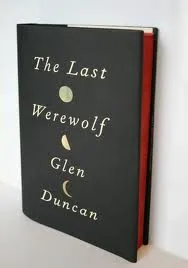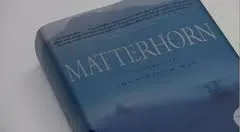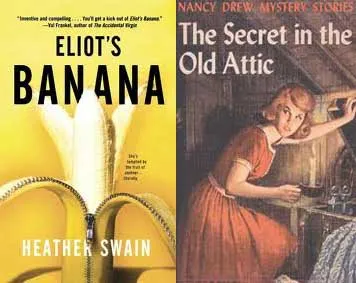
Drop It Like It’s Haute: The Jersey Shore Booktionary, volume 1
Welcome to Drop It Like It’s Haute, a weekly celebration of that unholiest of marriages between pop culture and literature.
__________
Bust out the extra-hold hairspray, home spray-tanning kit, and your pushiest of push-up bras because it’s time to get crazy (get wild) with this reality TV-inspired dictionary-cum-literary guide. We’re going to the Jersey Shore, bitches!
With a little help from this three-part Jersey Shore glossary we found at The Daily Beast, we’re borrowing phrases from everyone’s favorite guidos and guidettes to bring you a book list that will totally have you DTR (down to read, natch). Join us, Rebecca Joines Schinsky and Jeff O’Neal, for a trip to the shore like no other. And you better hurry because caaaaabs are here!
fresh to death (adj.)—to be and have the hottest of the hot and trendiest of the trendy. Translation: this one’s obvious.
JO: You can’t be any more on trend than zombie stuff. Except maybe zombie stuff that is a little post-zombie. And set in a post-apocalyptic New York. So I give you Zone One by Colson Whitehead, a zombie novel for people who don’t care at all about zombies. Plus he has dreads and lives in Brooklyn. And the book isn’t even out yet. Can’t get any fresher than that.
 RJS: Okay, so zombies are the new werewolves are the new vampires. I get it. Reluctant as I am to read about these creatures, I also can’t wait for Zone One, but it’s because I trust Colson Whitehead to do it right. But werewolves? Really? Just when I thought I was in the clear, along came Glen Duncan and his uber-clever, filthy-fucking-hot novel The Last Werewolf. This book! It has everything! Sex! History! Paranormal creatures! Battles with vampires! Literary references galore! Did I mention the sex?
RJS: Okay, so zombies are the new werewolves are the new vampires. I get it. Reluctant as I am to read about these creatures, I also can’t wait for Zone One, but it’s because I trust Colson Whitehead to do it right. But werewolves? Really? Just when I thought I was in the clear, along came Glen Duncan and his uber-clever, filthy-fucking-hot novel The Last Werewolf. This book! It has everything! Sex! History! Paranormal creatures! Battles with vampires! Literary references galore! Did I mention the sex?
JO: All I can picture is some sort of pornographic version of Teen Wolf. And not in a good way.
RJS: Clearly, this is a problem of imagination.
__________
done ( adj.)—the state of a relationship when one or both parties verbally claims to cease attempts to work out any outstanding issues between the partners
Translation: a book/author/genre about which you can no longer stand to think, hear, or read
JO: We’re to the point that if you have a character that is a college professor, especially of the humanistic variety, and they have some sort of illicit relationship with a student, then you are a hack. It’s like the red uniform-wearing crew member in Star Trek…you just know he’s going to get it. Except here replace red uniform with tweed jacket and “going to get it” with….well…”going to get it” actually.
RJS: Is the red-uniform-wearing crew member of Star Trek like the virgin in a horror movie? My current peeeve is self-consciously intentional post-9/11 fiction. I understand the need to process collective tragedies in fiction. Believe me, I do. But if I have to read another novel hailed as THE post-9/11 book, I’m going to claw my eyes out. Unless it’s Tom Perrotta’s The Leftovers, in which case I’ll read it and then read it again and then shove it at you until you read it.
JO: Totally agree here. This probably isn’t the author’s fault so much as the people who write jacket blurbs and do marketing. You know what touting something as THE post-9/11 makes me think? That you are an emotional parasite trying to cash in on something terrible. That’s not to say we don’t need this kind of novels, but how about just writing it and letting us decide.
__________
wake-up-the-whole-entire-house time ( n.)—the point of the day in which one roommate awakens the rest of his cohabitants by serenading them with song, pulling on covers, and stomping loudly
Translation: a book that has prompted you to do the literary equivalent of wake up the whole house with your desire for everyone you know to read it
JO: Matterhorn by Karl Marlantes
The Vietnam War seems like such well-trodden ground that it’s hard to even see it. But Marlantes does just that. There’s no hysterics like in Platoon or nihilistic absurdity like in Full Metal Jacket or borrowed allegory as in Apocalypse Now. This is bracing, front-line stuff that doesn’t wince but it also doesn’t exploit either. It’s the Vietnam novel we’ve needed all along, and who cares if it took 30 years. (Hear that 9/11 novelists? We can wait for the right book)
RJS: We’re in it together on Matterhorn. Also: A Visit from the Goon Squad (but I was hardly a lone voice in the wilderness), Waiting for Columbus by Thomas Trofimuk (I sold so many copies of this in hardcover that I should probably get a commission), and Skippy Dies by Paul Murray. That book is made of awesome, AND the author looks like the missing Weasley brother. What’s not to love?
JO: Alright, but which one would you recommend to some one who hadn’t read any of them? How do you like that choice, Sophie?
RJS: You just had to do that, didn’t you? I’m picking two just to put you in your place. Goon Squad because it’s very nearly perfect and Skippy Dies because, I mean, he dies on the floor of a doughnut shop and writes his final message on the floor with jelly. Amazing! There wasn’t a single thing about it I didn’t love. Matterhorn is intimidatingly long, and Waiting for Columbus, well, it’s good, but it’s the weakest of this bunch.
__________
grenade whistle (n.)—a vuvuzela-style horn that sounds to warn those on Seaside Heights that the Jersey Shore house is currently hosting a grenade
Translation: a book so bad that you read and discussed it so others wouldn’t have to suffer.
JO: Beatrice and Virgil by Yann Martel
When someone would ask me if I’d read this, I didn’t even have to speak. A look of horrified disgust would tell them all they needed to know. It would be like if the novel was about sentient animals locked in some inscrutable theatrical allegory about the holocaust. Oh wait.
RJS: Oh god, that was awful, wasn’t it? I actually felt like I was performing a public service by reviewing Beatrice and Virgil so other people wouldn’t have to give up precious hours of their lives waiting for Yann Martel to do his thing. But really, my grenade whistle claims to fame are the bizarrely dreadful trifecta of The Lost Symbol by Dan Brown (when you think Robert Langdon is FINALLY dead…), some Nicholas Sparks novel about a boy and girl who meet on the beach and fall in love despite the fact that they’re from two different worlds and her dad is dying (wait….), and the entire Twilight series. Yep. Because you don’t get to have an opinion about it if you haven’t read it, and I definitely wanted to have an opinion.
__________
double bagger ( n.)—not to be confused with the ineffective approach of wearing two condoms, this refers to an unattractive partner who is so unappealing, one must put a bag over both the partner’s head as well as his or her own.
Translation: a book you are so embarrassed you read that you can scarcely even admit to it now
JO: THE COMPLETE NANCY DREW……while I was 15 and home sick…..
RJS: Dude, Nancy Drew is the worst you have?
JO: Um, Nancy Drew is the fictional equivalent of a training bra. At 15, I would rather someone saw my My Little Pony collection. Ooh, have I said too much?
RJS: I read something called Eliot’s Banana by Heather Swain when I was stuck in an airport that had a sad, lonely spinner of books in the snack shop, and that was it. And yes, the book was as awful and phallic as it sounds. Banana masturbation….Need I say more?
__________
original guido (OG) ( n.)—an Italian American middle-aged man who uses his English-as-a-second-language quality to charm his way into a hot tub with younger guidettes
Translation:a recent book or author that seems to be from a different time and that benefits from it
JO: Marilynne Robinson.
She got me to cry about midwestern protestant ministers who don’t really do anything except sit around and think about the subtler points of the New Testament. I don’t exactly know how she did it, but the book feels timelesss. It doesn’t feel dated, but it also doesn’t feel like a classic; it seems fresh and surprising and yet inevitable. They don’t make ‘em like this anymore.
RJS: Yes, yes, a thousand times yes to Marilynne Robinson. Carlos Ruiz Zafon did it for me in The Shadow of the Wind. Richard Russo’s portraits of small towns when the times they were a-changing make me nostalgic for places I’ve never been. Michel Faber fits the bill, but only in The Crimson Petal and the White, which could be Victorian if it weren’t so progressive. And don’t even get me started on the exemplary use of second-person voice in the opening section. Gah! I love the rest of Faber’s work, but Under the Skin is of a different time in a whole other, “soylent green is people,” kind of way.
This concludes volume 1 of the Drop It Like It’s Haute Jersey Shore Booktionary. Hit us up again next week for more.











